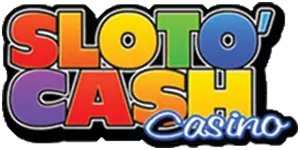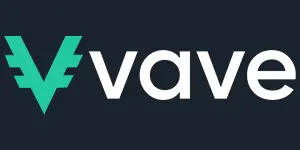Swedish Casinos
Want the best online casinos in Sweden? Below is our expert selection of Swedish-friendly casino sites with smooth payments and responsible play tools.
Following the implementation of the new gambling regime in Sweden on January 1, 2019, via the Swedish Gambling Act (SFS 2018:1138), the local industry was subjected to reregulation, resulting in more operators obtaining licenses to operate legally in the country.
Spelinspektionen, the Swedish Gambling Authority, is the state-owned regulator of the industry in the Nordic country, empowered to monitor the safety and legality of the market. It strives to provide local players with the tools and mechanisms necessary for transparent gaming by ensuring a well-balanced market while simultaneously minimizing the potential harmful impact of gambling. The adjustments to the gambling regime are grounded in a licensing system, requiring all gambling companies to hold a license from the state regulator.
Most Popular Swedish Casinos
The team at Casino Games Pro has conducted extensive research on online casinos catering to Swedish players and has compiled a list of premier operators offering interactive casino games.
We have thoroughly investigated key aspects of their operations, including the variety of their gaming catalogs, supported payment and withdrawal methods, and customer support. We also provide useful information on their promotional offers, minimum deposit requirements, and game diversity, offering players a shortcut to their favorite interactive entertainment.
-
Casumo Casino
At Casumo, Swedish gambling enthusiasts are treated to a vast variety of over 3,300 quality casino games from a broad spectrum of leading and innovative software developers. This results in a fresh and diverse gaming experience that caters to every taste and preference. The reputable iGaming brand accepts Swedish players with a license procured from the local regulator Spelinspektionen, although it is also licensed in multiple other jurisdictions like the UK and Malta.
Website casumo.com Licenses Malta Gaming Authority, Swedish Gambling Authority, UK Gambling Commission, Gibraltar Regulatory Authority, Alcohol and Gaming Commission of Ontario, DGOJ Year Established 2012 Support Channels hey@casumo.com Available Bonus 100% Bonus up to £25 and 20 Bonus Spins Compatibility Android, Apple, Windows Deposit Methods Bank Wire Transfer, MasterCard, Neteller, PaysafeCard, Visa, iDEAL, Giropay, Skrill, PugglePay, MuchBetter, Sofort, CashtoCode, Payz Withdraw methods Bank Wire Transfer, Neteller, Visa, Skrill, MuchBetter, Payz Swedish players at Casumo can dive into a sea of high-end slots, including beloved three-reel classics and the latest modern slot releases. Beyond slots, the casino offers a rich tableau of table games, ensuring fans of blackjack, roulette, and poker have plenty to engage with. The integration of a unique mission-based promotional system further elevates the experience of players and rewards them as they climb through the ranks.
Casumo’s commitment to providing a seamless and secure gaming environment is evident in its robust customer support and advanced security measures. The platform’s mobile compatibility ensures that players from Sweden can enjoy their favorite games on the go, with the assurance of fair play backed by regular independent audits.
Pros- Recognized with numerous eGaming awards.
- Houses popular progressive jackpot slots.
- Boasts very high withdrawal limits.
- Optimized website for mobile use.
- Rapid and professional customer service.
- Wide array of live dealer games.
Cons- Some providers are not available in all regions.
- Not all payment methods are accessible globally.
- Multiple restricted countries.
- Lacks phone support.
- Charges for withdrawals under £10.
-
Videoslots Casino
Swedish gambling buffs have access to a staggering variety of gaming options at Videoslots Casino whose portfolio spans over 6,500 titles spread across numerous genres. The brand collaborates with more than a hundred leading software developers. Some of the most eminent names on the casino’s software roster include industry bigwigs like Playtech, Microgaming, Pragmatic, and NetEnt. Videoslots is regulated by prominent bodies like the Swedish Gambling Authority, which ensures a safe and fair gaming environment for all.
Website videoslots.com Licenses Malta Gaming Authority, UK Gambling Commission, Swedish Gambling Authority, AAMS Italy, Alcohol and Gaming Commission of Ontario, Danish Gambling Authority Year Established 2011 Support Channels se.support@videoslots.com Available Bonus 100% up to 2,000 SEK welcome bonus Compatibility Android, Apple, Windows Deposit Methods Payz, Mastercard, Neteller, Paysafecard, Visa, Neosurf, Trustly, Skrill, Direct Bank Transfer, Siru Mobile, Zimpler, Interac, Flexepin, Voucher, Bank Wire Transfer, Klarna Instant Bank Transfer, Instant Bank Transfer, Apple Pay, CashtoCode, Citadel Instant Banking, Giropay, InstaDebit, JCB, MiFinity, MuchBetter, PayPal, Rapid Transfer, SMS, Venus Point, Payforit Withdraw methods Bank Wire Transfer, Mastercard, Neteller, InstaDebit, Visa, Payz, Skrill, Trustly, Swish, Interac, JCB, Klarna Instant Bank Transfer, MiFinity, MuchBetter, PayPal, Paysafecard, Rapid Transfer, Venus Point, Zimpler The user experience at Videoslots is unparalleled as the website comes with intuitive navigation tools that effortlessly guide players through the extensive library. Whether you’re drawn to the vibrant world of video slots, classic table games, or the dynamic atmosphere of live dealer rooms, the platform’s design ensures you can quickly locate your favorite titles with minimal effort.
Videoslots provides Swedish players with a secure gaming environment and publishes the monthly payout percentages of all games it offers. Customer support is another area Videoslots excels in. Available round the clock, the casino’s support team is ready to assist players through multiple channels, ensuring every visit is enjoyable and stress-free. With rigorous licensing, a commitment to customer satisfaction, and a broad range of games, Videoslots is a premier destination for all discerning Swedish players.
Pros- Extensive game library with over 6,500 titles
- Diverse payment options with over 30 methods
- Robust responsible gambling tools
- Collaboration with over 100 software providers
- Accepts Swedish krona for direct transactions
- Offers popular progressive jackpot slots
- High withdrawal limits
- Has been enjoying an excellent reputation since 2011
Cons- Charges fees for multiple withdrawals in a single day
- Numerous geographical restrictions
- Slightly outdated website design
- Offers lower RTP games in some regions
-
LeoVegas Casino
At LeoVegas, Swedish players have the luxury of choosing from an extensive catalog that spans over 1,300 first-class casino games provided by numerous top-tier software developers, including major brands like Pragmatic Play, Fantasma, and Microgaming. Dubbed “the King of Mobile Gaming”, LeoVegas delivers a superior playing experience on smartphones and tablets via a mobile-compatible site and native applications for Android and iOS. Mobile players can indulge in anything their hearts desire, from high-definition slots to immersive live dealer tables, all of which are just a couple of touchscreen taps away.
Website leovegas.com Licenses Malta Gaming Authority, Swedish Gambling Authority, Alcohol and Gaming Commission of Ontario, Gemeinsame Glücksspielbehörde der Länder (GGL) Year Established 2012 Support Channels support@leovegas.com Available Bonus 100% up to £200 + 100 Free Spins Compatibility Android, Apple, Windows Deposit Methods Maestro, MasterCard, Neteller, Paysafecard, Visa, POLi, Trustly, Skrill, AstroPay Card, Sofort, Payz, EnterCash, Fast Bank Transfer, Interac, Jeton, MuchBetter, Pay4Fun, SafetyPay, Zimpler, Swish, Siru Mobile, Euteller, Giropay, PayPal, Klarna Instant Bank Transfer, iDebit, instaDebit, Bradesco, JCB, Apple Pay Withdraw methods Bank Wire Transfer, Neteller, Visa, Skrill, Paysafecard, Trustly, POLi, MuchBetter, Payz, iDebit, instaDebit, Interac, AstroPay Card, JCB Apart from offering an impressive array of games, LeoVegas treats Swedish players to a 100% welcome bonus of up to 4,000 SEK plus 100 free spins on MGM Grand Gamble (additional terms apply). On top of this, customers face an enormous choice of over 70 jackpot games that can transform their lives in a split second.
Ensuring a seamless and secure gaming environment, LeoVegas Casino prioritizes customer satisfaction and safety. Swedish players can rely on round-the-clock support through multiple channels, including live chat and email. LeoVegas stands out as a premier destination for Swedish players looking to gamble responsibly and safely thanks to its robust security measures and strict adherence to local regulatory requirements.
Pros- Fully instant-play interface for seamless gaming on desktop and mobile.
- Vast selection of slots from a wide array of software providers.
- Includes a live dealer room with a diverse game selection.
- Round-the-clock customer support available through various channels.
- High security and fairness standards with SSL encryption and independent audits.
Cons- Not available to players in many countries, including parts of Europe, Asia, and Latin America.
- Bonuses are restricted to players from certain countries.
- Lacks bonus and jackpot options in video poker games.
-
PlayOJO Casino
PlayOJO Casino offers Swedish gambling aficionados a diverse range of titles from industry-leading providers like Playtech, NetEnt, Quickspin, and Microgaming. The casino is accessible via a no-download, instant-play platform and is regulated by both the Malta Gaming Authority and the Swedish Gaming Authority.
Website playojo.com Licenses Malta Gaming Authority, UK Gambling Commission, Danish Gambling Authority, Swedish Gambling Authority, Alcohol and Gaming Commission of Ontario Year Established 2017 Support Channels Support@playojo.com Available Bonus Welcome Bonus: 50 Free Spins on First Deposit (no wagering required) Compatibility Android, Apple, Windows Deposit Methods Bank Wire Transfer, Payz, Maestro, Mastercard, Neteller, PayPal, Paysafecard, Visa, Sofort, Fast Bank Transfer, Trustly, Skrill, Instant Bank Transfer, Apple Pay Withdraw methods Bank Wire Transfer, Maestro, Mastercard, Neteller, PayPal, Paysafecard, Visa, Sofort, Wire Transfer, Payz, Fast Bank Transfer, Skrill, Trustly, Instant Bank Transfer, Apple Pay Dedicated to offering a thrilling gaming experience, PlayOJO rolls out the red carpet for slot enthusiasts with an eclectic mix of classic and modern video slots, including fan favorites and life-changing progressive jackpots. Swedish players can dive into a treasure trove of top-tier titles, all designed to provide non-stop entertainment and big-win possibilities.
PlayOJO exemplifies fairness and transparency in the Swedish online casino landscape as it ditches traditional bonuses in favor of wager-free offers with no caps on maximum withdrawals. All this, coupled with robust player protection tools and efficient banking methods, makes PlayOJO a top choice for all Swedish players who demand high-quality gaming.
Pros- No Wagering Requirements: Offers bonuses without playthrough conditions, a rare find in the online casino world.
- Quick Withdrawal Timeframe: Processes withdrawals within 0-24 hours.
- Round-the-Clock Live Chat: Customer support is available 24/7.
- Wide Game Selection: Hosts an extensive range of games from top software providers.
- Player Rewards: Returns money on every bet, win or lose.
- Mobile Optimization: Features a mobile-friendly design for gaming on the go.
- Regulatory Approvals: Holds licenses from multiple esteemed authorities, ensuring compliance and security.
Cons- Support Access: Requires registration for support services.
- Live Chat Response: May experience slow response times.
-
Betsson Casino
Betsson Casino gives Swedish players the opportunity to explore a vast range of gaming options, offering titles from a remarkable assembly of over 50 software giants. This renowned platform ensures a diverse gaming experience and is perfectly tailored to suit every player’s preferences, with a portfolio that seamlessly blends classic favorites with the latest game releases.
Website betsson.com Licenses Swedish Gambling Authority, Malta Gaming Authority, DGOJ Year Established 2001 Support Channels support-en@betsson.com Available Bonus 100% up to SEK 500 + 100 free spins on Book of Dead Compatibility Android, Apple, Windows Deposit Methods Debit cards by Mastercard, Visa, Maestro, Neteller, Paysafecard, Skrill, and more Withdraw methods Bank Wire Transfer, Mastercard, Neteller, Skrill, Trustly, Visa, and others Swedish customers who join the ranks of Betsson are in for a generous welcome bonus, designed to enhance their gaming experience from the very moment they sign up. Beyond its exciting welcome offer, the casino runs various tournaments on a regular basis within a framework that emphasizes responsible gaming and player safety.
Dedication to customer satisfaction is evident at Betsson, with a support team ready to assist players around the clock via live chat, email, or phone. All in all, this casino stands as a premier choice for Swedish players thanks to its robust security measures, commitment to fair play, and licenses from first-tier regulatory bodies like the Swedish Gambling Authority.
Pros- A quick withdrawal process
- High limits for withdrawals
- Extensive range of game providers
- Offers popular progressive slots
- Phone support for customers
Cons- Fewer options for withdrawals compared to deposits
- A somewhat subpar welcome bonus
- No toll-free phone support
- A limited selection of video poker games
History and Legal Landscape of Online Gambling in Sweden
Presently, both interactive and land-based gambling activities are authorized in Sweden, with residents able to bet on a variety of products, including bingo, arcades, scratch cards, lotteries, and poker, among others. Under its section dedicated to licensed iGaming and sports-betting operators, Spelinspektionen lists more than 100 providers of gambling services. However, the state of the gambling industry was quite different before the reregulation of the Swedish gambling market took place in 2019.
Before the Swedish Gambling Act came into force on January 1, 2019, the market operated under a state monopoly. From the beginning of 2019, Sweden abandoned the monopoly model and switched to a licensing system.
Until then, all gambling-related activities in the country were monopolized and under the control of the Swedish National Lottery, commonly known as Svenska Spel, which was fully owned and backed by the state. While the legislative framework created the impression that Sweden was home to a regulated and open gambling market, in practice Svenska Spel was the only company granted a license to offer gambling services to residents.
There are two important pieces of legislation related to online gambling in Sweden, the first being the 1994 Lotteries Act. It covers an extensive range of gambling products, including slot machines, bingo, lotteries, dice games, and traditional table games such as roulette and poker. This legislation empowers the Swedish Gambling Authority to grant licenses to land-based and online gambling operators.
This regulatory body is also responsible for ensuring the aforementioned games are run fairly and in compliance with its guidelines. Gambling-related games can be offered only after they are approved by state-owned bodies like Svenska Spel or the Swedish Gambling Authority. According to the provisions of the Lotteries Act, advertising lotteries and casino games offered by foreign gambling operators is illegal.
Another important piece of legislation is the Casinos Act, which came into force in 1999 and introduced additional regulations concerning dice and card games. However, these regulations applied predominantly to brick-and-mortar gambling establishments. The Casinos Act outlined gambling age limits and prohibited land-based venues from issuing credit to their customers.
The year 2002 saw the introduction of an amendment to the 1994 Lotteries Act. Its purpose was to update the legislation so that it covered online gambling as well. This amendment allowed Svenska Spel to offer Swedish players online casino games, making it the only licensed interactive gambling provider in the country. In 2006, Svenska Spel received another license allowing it to become the sole provider of online poker services.
The Swedish government justified the monopolization of the online gambling sector with the argument that it protected players against unreliable gambling platforms. Lawmakers also contended that monopolization would reduce the social harms associated with pathological gambling.
In the summer of 2010, the European Court of Justice sided with Sweden, backing its ban on the advertisement of online gambling. The ruling followed protests by two of Sweden’s largest newspapers against fines imposed for publishing advertisements promoting foreign-based online gambling operators.
Controlling the monopolized sector came with certain disadvantages for Svenska Spel. The operator was subjected to burdensome regulations that made it nearly impossible to compete with foreign gambling providers. For example, the company was permitted to offer online poker, but its license restricted the service to Swedish players only. Needless to say, this negatively affected prize-pool accumulation, as fewer players contributed buy-ins. Consequently, many Swedes preferred foreign operators that offered larger gaming libraries, bigger pools, and better sports-betting odds.
Such operators held licenses from other respected and stringent jurisdictions, including the United Kingdom, Malta, and Gibraltar. Because these foreign operators are based in countries where online gambling is fully legal, they are under no obligation to comply with other nations’ legislation—especially if that legislation violates European Union trade agreements, as Sweden’s once did.
Indeed, there were plenty of options for Swedes who wished to bet by registering at foreign gambling websites. A large number of licensed, secure, and fair operators—including giants like William Hill, bet365, and 888casino—catered to Swedish players by offering transactions in SEK and several flexible payment methods. Further convenience came from the ability to load major gambling websites in Swedish.
More importantly, Swedish players were not prosecuted if they joined foreign-based gambling sites. As in many other countries, Sweden’s stringent laws applied predominantly to individuals and privately owned businesses offering gambling services, so there were no repercussions for ordinary players.
Nowadays, the official website of the Swedish gambling regulator provides updated information on licensed operators, which players can find at https://www.spelinspektionen.se/sok-licens/. It includes both local businesses and international operators. Land-based gambling, however, is restricted to four locations across the country, run by the company Casino Cosmopol.









